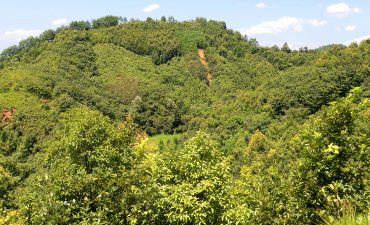Species-rich forests are more productive than monocultures
An international study examines the relationship between tree species diversity in forests and their growth performance.
An international study published in Science Magazine in October 2016 investigated the relationship between tree species diversity in forests and their growth performance, i.e. their wood productivity. In 44 countries, approximately 30 million trees of 8,737 tree species were examined on 777,126 permanent observation plots. The results show that there is a positive correlation between tree species diversity and biomass growth, i.e. the globally observed forests with a high tree species diversity grow better and more profitably than monoculture forests. If the number of tree species is reduced by half, the timber yield even drops by ten to 15 percent. These results make it clear on the one hand that a loss of species diversity in forests impairs wood growth, and on the other that forest conversion – away from monocultures towards species-rich mixed forests – can increase wood growth and thus the productivity of forests.
Comment
If one takes these results into account, among other things, with regard to the goal of forestry to achieve a high wood growth and the high vulnerability of monocultures to storm damage, there can only be one conclusion: away from spruce and pine plantations to species-rich mixed forests.
Source
Liang J. et al. (2016): Positive Biodiversity–Productivity Relationship Predominant in Global Forests. Science. DOI: 10.1126/science.aaf8957


